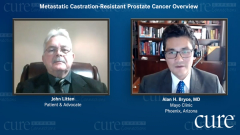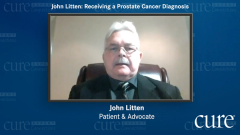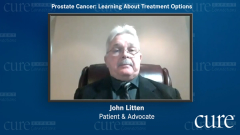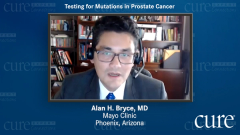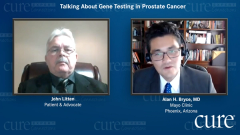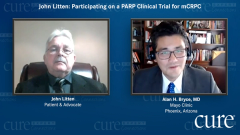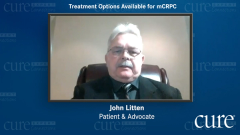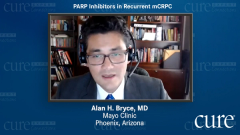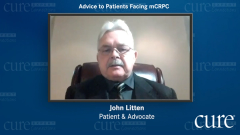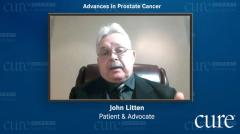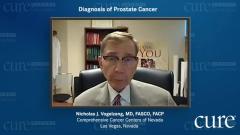
Patient’s Role in Decision-Making for Prostate Cancer
Episodes in this series

Transcript:
Nicholas J. Vogelzang, M.D., FASCO, FACP: There are many support groups for patients. I strongly recommend them. I helped start the prostate cancer group called Us TOO, back in the ’80s. We started it at the University of Chicago with five of our patients. I fondly remember Mr. [Vincent] Young…and others who started it. That is a national group now, they’re all across the country in various towns.
There was one over the hump of the mountains here in Pahrump, [Nevada], and I’ve gone over the hump to Pahrump a few times to give talks to the prostate group. We have one here in town, run by one of my patients, Tony. I get over there when I can, and we talk about the reality of prostate cancer. Everyone has a slightly different reality. Some will be cured by having had either radiation or surgery. Some will be in remission with hormone treatment. Some will be in the midst of treatment. I always describe prostate cancer like the Mississippi River. It’s a long journey, and if you start way up in Minnesota it’s going to take a long time to get to New Orleans.
But if you start in Memphis where the cancer is advanced, it’s not going to take that long to get to New Orleans. It all depends on where your journey started, and how many twists and turns there are as you float down that river of prostate cancer. The bottom line is most patients’ journey has to be interpreted for them. They don’t know where in the river they are. They may be at St. Louis, they may be in Minneapolis, or they may be in Vicksburg, Mississippi. You don’t always know exactly where they are. And educating them about where they are in the journey is important. Some patients live 20, 30 years with prostate cancer.
And you have other patients who only live two or three years. You must adjust that journey appropriately and educate them. I’ve learned that sometimes I can be a little bit too blunt, and I don’t mean to be blunt. But it is important for the patient to know where they are to make appropriate arrangements. If somebody is right about to enter the Gulf of Mexico, they need to know that, and they need to have their affairs in order and they need to have a plan of action. On the other hand, if they’re in Minnesota, and you’ve got 20 years of floating down the river, you don’t need to worry too much. And you can tell them don’t worry, this is going to be OK. They need to know that, and doctors need to educate the patient on that journey.
Transcript Edited for Clarity







